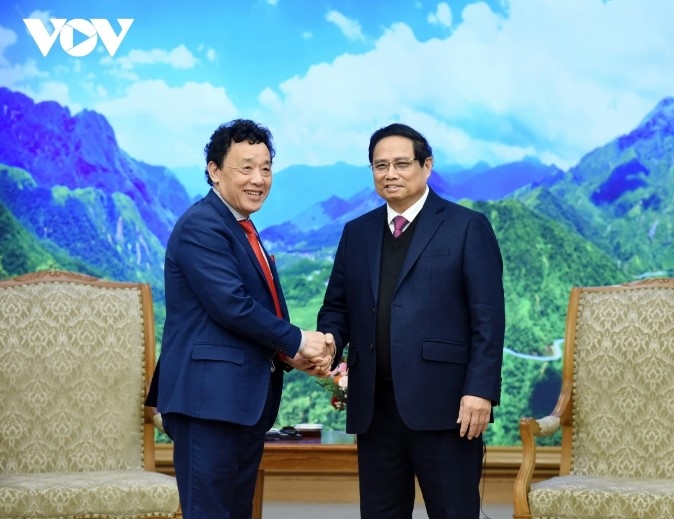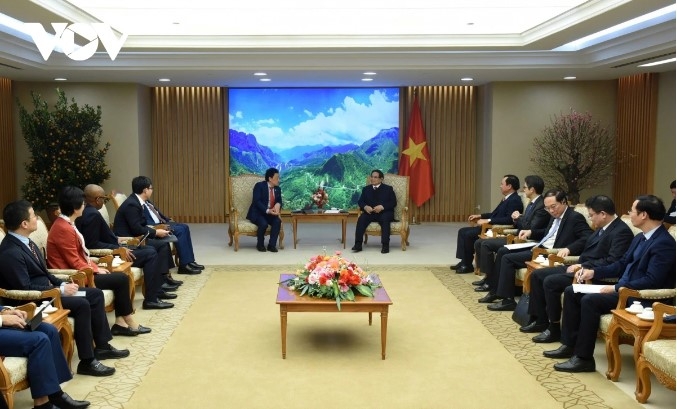PM affirms Vietnam's strong agricultural cooperation with FAO for sustainable development
VOV.VN - Vietnam greatly values its longstanding cooperation with The United Nations Food and Agriculture Organisation (FAO) particularly in promoting agricultural and rural development as well as transitioning towards a sustainable food system.

The statement was made by Prime Minister Pham Minh Chinh at a meeting with FAO Director-General Qu Dongyu in Hanoi on February 6.
Vietnam has made significant contributions to global food security, especially by increasing rice exports at a time when several countries restricted exports due to supply chain disruptions during the COVID-19 pandemic, Chinh told his guest.
To further strengthen cooperation, the Prime Minister called on FAO to continue supporting Vietnam in restructuring its agricultural sector towards higher value-added, green, sustainable, and climate-resilient development, along with advancing rural industrialization, urbanization, and digital transformation. He also emphasized Vietnam’s commitment to working with FAO in international cooperation programs, including sharing expertise with African nations in land exploitation and poverty reduction efforts.
FAO Director-General Qu Dongyu hailed Vietnam’s achievements in poverty alleviation and agricultural development, highlighting the country’s success in implementing the One Commune One Product (OCOP) program and exporting agricultural products, particularly rice and fruit.
He affirmed that Vietnam serves as a model, with valuable experience and lessons admired by many countries. FAO remains committed to supporting Vietnam’s initiatives for sustainable and green agriculture, such as the one-million-hectare program for high-quality, low-emission rice production.


